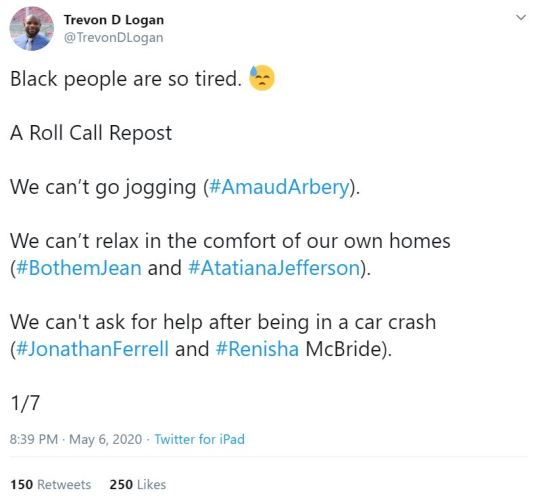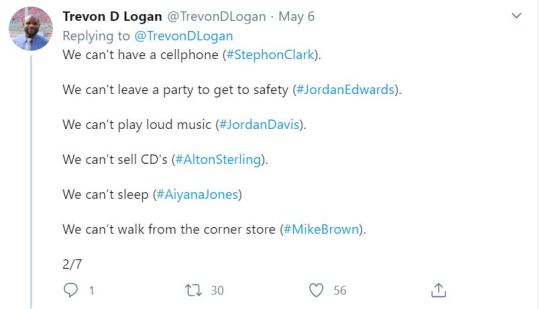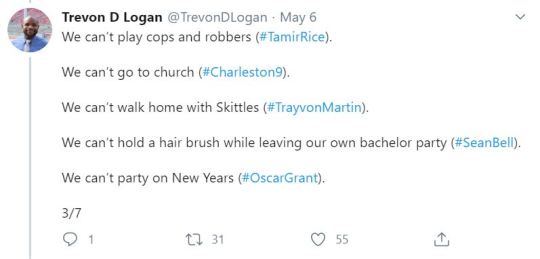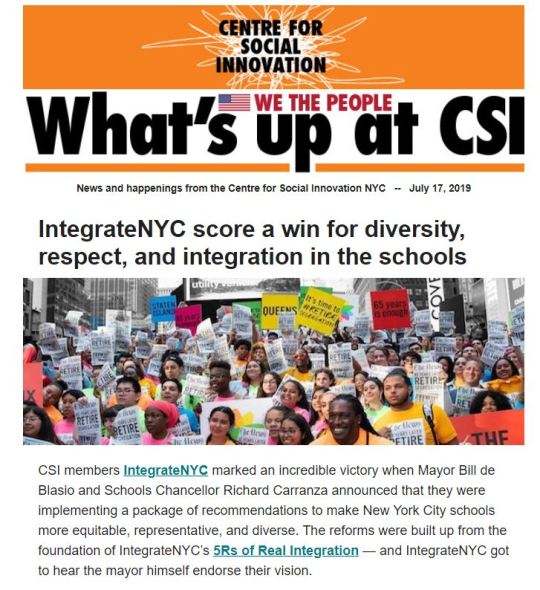#i dont believe in punitive justice HOWEVER
Text
this is probably my boomeriest belief but I truly think if you're talking to/hanging out with someone you should not be scrolling through shit on your phone. like it's one thing if you receive a text or call that you need to answer real quick but if I'm talking to you and you start scrolling through Twitter I should legally be allowed to cut your hand off
#i dont believe in punitive justice HOWEVER#im also so so so fucking sick of being ignored! it makes me not want to talk!! like im seriously just gonna never hang out with you again#if you do shit like this a lot#because its fucking rude. you will have time to watch tik toks when you're no longer part of an active conversation#this is why all my favorite people are like 35+ akdjhdkshkdjskabdhe im sorry but hanging out with people in my age group#makes me feel like im losing my mind sometimes#also i have the life experience of the average 30 something so
12 notes
·
View notes
Note
thank you for the long & thought out response. while i do fully agree with you on stances like prison abolition & the myth of the stranger pedophile scapegoat, my question and discomfort with jimmy’s actions comes not so much from a political/philosophical standpoint but from a very human emphatic one. i put myself in the shoes of the girl he groomed and abused and imagine people listening to and enjoying the music of my abuser and it makes me sick to my stomach. so thats more where my guilt and discomfort comes from. that said i can’t say that their music doesn’t have an impact or isn’t enjoyable. i also agree with you that this mass outrage and very public renunciation and demand for punishment is very much a social mechanism and automatic reaction that quite simplifies a complex situation. however these mechanisms exist for a certain evolutionary purpose after all (sorry my background is psychology) but thats sort of besides the point because im also not a fan of how these things get handled with zero nuance.
its also true what you said that me or you or anyone deciding to disengage with this band or their music changes nothing in the grand scheme of things, so doing it as some sort of Noble Cause against abuse is useless. so in this case i feel it’s up to personal preference and whether or not i can swallow the cognitive dissonance and discomfort this information arises in me whenever i listen to their music from now on.
thanks again for the insightful response, i’m glad we can have this sort of discussion because i also think this topic is extremely important but people often shy away from it because it’s so heavy.
im glad you asked me to share! like i said ive spent a lot of time thinking abt this specifically so its very much like years worth of mishmash thoughts kinda strung together only by me experiencing them over time in succession lol. but i agree its important to talk about it especially within a culture so ensnared in the logic of the prison and particularly how effectively thats been exported into like 'mob justice' for lack of a better word.
re: the emotive aspect im not sure i have much to say other than like Yeah its a very strong one and i dont think its a bad thing at all to have. i got the impression from ur ask--and idk how true this is--that you were wrestling between a desire to return to the music bc you enjoyed it and that response preventing you and feeling a sort of obligation to do one over the other n struggling with that. so i think i approached it as like 'heres ways you can reason w that emotional response and grapple w it if its smth ur agonizing over' or something like that. im also a firm believer in the ways politics shapes the ways we think n feel so my instinct was to tease out some of the structures that may be shaping ur thought processes--which of course i nor anyone but you can fully know. but i dont get that same sense from how u describe it here and either way i think whatever feeling ur having about it is like...i dont want to say its 'valid' but ur allowed to have that and do whatever you want pretty much lol. i cant and am not going to force anyone to engage w the band and theres probably more reasons than i could think to list why its not for everyone even without the sordidness of abuse hanging over it.
without getting into a much much broader discussion i would gently push back on the idea of a biologically innate reason for the existence of carceral/punitive logics (and frankly psychology more broadly), if only bc it does a lot of the work of justifying them. keep in mind that these are concepts ideas and patterns of thought that exist because they serve systems of power and particularly the state. we did not have to have a society which created them, we only happen to--which is to say theyre not innate in this way and i disagree that they have an 'evolutionary' purpose bc it fails to properly historicize them. but thats me coming from an antipsych position lol
#asks#frankly for me its like....sometimes we do feel that emotional reaction n sometimes we dont#and im interested in where the difference is or where the line is drawn#some things are considered 'too big to fail' theres plenty of other much more influential musicians that have equal or worse allegations#but nowhere near the same response#and part of this is just 'size' its much more effective to do this to a smaller artist n a smaller community than like potential millions#of say michael jackson fans right. so part of this for me is yeah why does jimmy urine make ppl feel so strongly#and again part of it is 'size' msi is smaller its like 'cult classic' music for lack of a better word and its obviously evidently queer#so u can weaponize that extant fear of queer ppl and within the queer community of people fearing us#thats not to like diagnose that as something going on w u just that like....the emotional response itself is politically complicated#is what im going for here#so sorry i gave u a bunch a lot of stuff that may not have had anything to do with how ur feeling . i was thinking about other shit#im glad u appreciated though lol!
2 notes
·
View notes
Text
not to be back on my restorative justice bs but it annoys me so much when you watch some kind of true crime content and the person says something like "they ONLY got 20 years in jail!" essentially to make you go "doesn't that make you mad? doesn't that make you wish the criminal justice system was even more punitive?? we all agree they deserve worse right?? cuz thats how it works when you think someone is guilty. you must want them to rot in jail forever cuz thats what justice is. yes i'm american in case you can't tell."
ok. lets take like twenty steps back.
it does make me sad that the crimes in question happened. its sad that someone died or got hurt or whatever the case may be. that's not in dispute.
however, no, i really don't think putting a perpetrator in jail fixes things, especially not for inhumanely long sentences. it doesnt help victims in any tangible way, and life doesnt work like a hollywood movie where the world becomes safe when the evil is defeated. socioeconomic, cultural and psychological circumstances reproduce themselves over and over again. no one is born some kind of supervillain. massive structural change to everything from economics to families is the only way to truly make crime less desirable from the perspective of the criminal.
like. you have to believe crime comes from either internal (psychological) or external (environmental) factors, or a combination, and neither is solved by a punitive system. if you believe crime is primarily a psychological issue - genetics and such - then doesn't that make jail cruel by default? you're essentially saying that this was something inherent to the person's very biology, and they obviously did not choose to have that be inherent to them.
and if you believe crime is primarily about external (environmental) factors, then i feel like i shouldn't even need to say this, but that does kinda make things society's fault, at least partially. people don't choose their environments or upbringings or socioeconomic castes either. desperate people will remain desperate under desperate circumstances.
and i know free will advocates in the "free will vs determinism" debate will argue that at the end of the day its what you "do" with the circumstances given, how you interact with them without making "excuses" for yourself, but once more - you have to believe those choices are based on something. some become criminals, some don't. either its based on learning from your environment, or its based on some kind of inherent psyche, or a combination - in which case i'd refer you to the options above. even free will absolutists dont think choices are based on nothing whatsoever or that external factors dont matter.
the point being, even assuming everything is the individual criminal's "fault" still forces you to dig deeper and think about why they're doing what they're doing. in both a psychological and societal reading, you can't really just blame the person "in a vacuum", which puts a wrench into the logic of punishment as inherently just.
also, it just... doesn't solve things. look at reoffending rates. countries with lighter sentencing with focus on rehabilitation tend to have less people commit further crimes, almost like people dont automatically get better when you punish them more harshly. and if you punish them harsher anyway, you're not doing it for any constructive reason, you're just angry and want someone to hurt.
in a punitive system, a criminal is likely get worse, because they have it reinforced that nobody cares about them. the system isnt here to help them, they have to look out for themselves. vulnerability and seeking help is not rewarded, because the people in charge have already decided to focus on punishment, not healing. therefore, no psychological issues can be solved, nor coping strategies developed to deal with societal ills that affect them. its all just about "deserving" punishment, for its own sake. who cares what "helps!" if they don't "learn" from being punished, they were "clearly" a lost cause anyway!
at that point, its really just a circlejerk to validate your own anger. like. i understand true crime shit is just entertainment on some level, like its all a story being told, and people having the audacity to form punitive opinions on how if they were in charge they'd just kill the son of a gun... or whatever else makes them feel better. whatever allows them to express their anger uncritically. but thats all affecting how this shit works in the real world. its still deeply politically unpopular in america to even allow criminals to vote, much less lower sentencing.
culture doesn't control everything, no. but a lot of true crime shit is copaganda (in the sense of protecting the existing system by focusing your attention on how depraved evil criminals "have it coming" and giving you a "happy ending" when the prosecutors get them jailed).... and there's so many gen z leftist winged eyeliner cool kids churning out that content. with no self-awareness.
sorry but if you're like a youtube leftist or feminist or whatever, it is patently insane to me to be on the side of pumping out agitprop encouraging people to hate criminals more and more without any deeper examination of that impulse. jfc.
ok. done venting my own anger now. will go pet my cats. here's some random internet cats to help you with whatever bothers you.

104 notes
·
View notes
Text
The urgency of intersectionality
TW: Discussion of murder and Black folks’ deaths, allusions to police brutality, gender-based violence
youtube
“Like Kate and Queens-bred rapper Nas, I also believe that when it comes to the story of Black girls in the Americas, ‘it was written.’ However, we diverge radically on the beginning and end of this mythic tale” (Shange 110-1).
Crenshaw, Kimberlé. “The urgency of intersectionality.” Oct. 2016. Lecture.
Shange, Savannah. Progressive Dystopia : Abolition, Antiblackness, and Schooling in San Francisco. Duke University Press Books, 2019.
_____________________________________________________________
Say Their Names
TW: Discussion of murders, violence, and Black folks’ deaths, allusions to police brutality and policing







@TrevonDLogan (adapted from someone else, author unknown). “Black people are so tired. A Roll Call Repost. We can’t go jogging (#AmaudArbery). We can’t relax in the comfort of our own homes (#BothemJean and #AtatianaJefferson). We can't ask for help after being in a car crash (#JonathanFerrell and #Renisha McBride). We can't have a cellphone (#StephonClark). We can't leave a party to get to safety (#JordanEdwards). We can't play loud music (#JordanDavis). We can’t sell CD's (#AltonSterling). We can’t sleep (#AiyanaJones) We can’t walk from the corner store (#MikeBrown). We can’t play cops and robbers (#TamirRice). We can’t go to church (#Charleston9). We can’t walk home with Skittles (#TrayvonMartin). We can’t hold a hair brush while leaving our own bachelor party (#SeanBell). We can’t party on New Years (#OscarGrant). We can’t get a normal traffic ticket (#SandraBland) We can’t lawfully carry a weapon (#PhilandoCastile) We can't break down on a public road with car problems (#CoreyJones) We can’t shop at Walmart (#JohnCrawford) We can’t have a disabled vehicle (#TerrenceCrutcher) We can’t read a book in our own car (#KeithScott). We can’t be a 10yr old walking with our grandfather (#CliffordGlover). We can’t decorate for a party (#ClaudeReese). We can’t ask a cop a question (#RandyEvans). We can’t cash our check in peace (#YvonneSmallwood).We can’t take out our wallet (#AmadouDiallo). We can’t run (#WalterScott). We can’t breathe (#EricGarner). We can’t live (#FreddieGray). We’re tired. Tired of making hashtags. Tired of trying to convince the world that our #BlackLivesMatter Tired of dying. Tired.” Twitter, 6 May. 2020, 8:39 p.m., https://twitter.com/TrevonDLogan/status/1258194797543723014.
_____________________________________________________________
#WhiteFeels
“Finally, to rationalize her #WhiteFeels and the denial of Black subjectivity, Kate positions Robeson as a colonial settlement in which she has rightful dominion. Rather than a benevolent vision resonant with the ‘Community, Social Justice, Independent Thinkers’ mission of Robeson, Kate here advances a plainly imperial view of the school space: ‘This is not your school—it is our school’ (Shange 79).
“In the afterlife of slavery, this ubiquity of enforcement has transmogrified into the figure of the white police officer, whose #WhiteFeels, closely related to #WhiteTears, is a hashtag used by race-con-scious social media users to highlight the fragility of white liberal allyship, and to more broadly critique the centering of white people’s emotional experiences at the experience of material costs to Black lives and lives of color. For more on #WhiteFeels, see Damon Young, ‘White Tears, Explained for White People Who Don’t Get It’” (Shange 79).
Article Savannah references: https://verysmartbrothas.theroot.com/white-tears-explained-for-white-people-who-dont-get-i-1822522689
Shange, Savannah. Progressive Dystopia : Abolition, Antiblackness, and Schooling in San Francisco. Duke University Press Books, 2019.
Young, Damon. “White Tears, Explained, For White People Who Don't Get It.” Very Smart Brothas, Very Smart Brothas, 29 Jan. 2018, verysmartbrothas.theroot.com/white-tears-explained-for-white-people-who-dont-get-i-1822522689.
_____________________________________________________________
IntegrateNYC


IntegrateNYC is a “is a youth-led organization that stands for integration and equity in New York City schools” (IntegrateNYC). Please check out IntegrateNYC’s website: https://www.integratenyc.org/home/#introduction
“[K]ids should be groomed for college, not prisons” (Shange 135).
“Robeson Justice Academy pours immense resources into avoiding the school-to-prison pipeline through restorative justice and democratic practices, and yet still reenacts the logics of Black punition and disposability by counseling young people to transfer out of the school and criminalizing the border between the school and the neighborhood" (Shange 15).
“IntegrateNYC Wins Recognition for Integration, Mik Moore Creates Funny Videos for a Good Cause, and More!” IntegrateNYC Wins Recognition for Integration, Mik Moore Creates Funny Videos for a Good Cause, and More!, mailchi.mp/socialinnovation/we-the-people2-1342489?e=d7fff9b334.
Shange, Savannah. Progressive Dystopia : Abolition, Antiblackness, and Schooling in San Francisco. Duke University Press Books, 2019.
#ioc2020#iocgjs2149#integratenyc#crenshaw#transformative justice#police abolition#restorative justice#say her name#say their names#black lives matter#BLM
0 notes